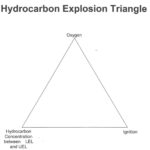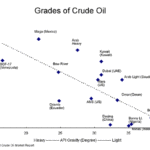In this 5 part blog series on Biodiesel Production, we will discuss the following 5 areas over the next 5 weeks: Chemistry Degumming Esterification Transesterification Purification When starting with crude degummed oils that have not been alkali refined, then step one is usually performed by the crusher and steps 2, 3 and 4 by our Biodiesel Technology. 1. … [Read more...]
Hydrocarbon Gas Flammability – Part 1 of 3 in a Series on Explosions
Introduction to Hydrocarbon Gas Flammability Today in Part 1 we will introduce important concepts in hydrocarbon gas flammability. For a fire or deflagration to occur, three things must be present: oxygen (above the minimum oxygen of combustion), an ignition source, and hydrocarbons (in concentrations between the Upper Flammability Limit and Lower Flammability Limit). The … [Read more...]
Mini Refineries for Emerging Economies and Remote Locations
Modular mini refineries are best utilized in emerging economies and in remote locations where gasoline, diesel and fuel oil are needed. The local crude oil is normally your lowest cost feed stock because the transportation costs are minimized. Mini refineries with heavy crudes and low API gravity produce more fuel oil and less naphtha and diesel. Light crudes with high API … [Read more...]
California’s New Regulations for Oil Refineries
In response to the fire and chemical release at Chevron’s Richmond Refinery in August of 2012 the U.S. Chemical Safety and Hazard Investigation Board (CSB), California Division of Occupational Safety and Health (Cal/OSHA), Office of Emergencies Services and California EPA began looking at the conditions of refineries across the state. … [Read more...]



